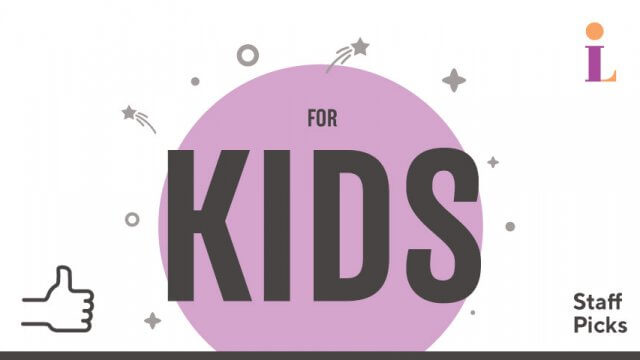Counting
Entries written in both braille and print, accompanied by tactile images, allow both sighted and unsighted readers to discover numbers and counting.

January 4, World Braille Day, honors braille’s inventor, Louis Braille and the whole month of January brings awareness to this tactile writing code.
Despite technological advances such as audiobooks and screen readers, braille provides greater access to activities of daily living as well as to books. And for little ones with visual impairments, getting ready to read involves getting their hands not only on books and braille dots, but different textures, so their fingers can get used to reading.
To learn a little more about reading braille, check out these hands-on and/or braille board books or biographies of Louis Braille. For information about braille picture books and other materials, contact the Library for the Blind and Physically Handicapped (soon to be known as LAMP: Library of Accessible Media for Pennsylvanians).
You can sign up for a free library card here. If you are new to our eResources, check out these tutorial videos on how to get started.
Looking for a good book, album, movie or TV show? We’re happy to recommend them to you! Use this Personalized Recommendations form to send us some information about what you like and we’ll curate a list just for you.
If you have any additional questions, you can contact a librarian through Facebook, Instagram or Twitter. You can also call us at 412-622-3114 or email us at info@carnegielibrary.org.
Entries written in both braille and print, accompanied by tactile images, allow both sighted and unsighted readers to discover numbers and counting.
Varying textures and bright colors make familiar objects in this board book fun to interact with and perfect as a springboard for conversation and object identification.
Uses high-contrast tactile illustrations, rhyming text, and page numbers and selected words that are both printed and in braille to turn a visit to the beach into a sensory experience which can be enjoyed by all children whether they are sighted, partially sighted or blind. Includes one illustration with pull tabs and another with a lift-the-flap.
Entries written in both braille and print, accompanied by tactile images, allow both sighted and unsighted readers to discover various shapes.
Louis Braille was just five years old when he lost his sight. He was a clever boy, determined to live like everyone else, and what he wanted more than anything was to be able to read.
Every picture is touchable, from the sticky mud on the loader to the bumpy tires on the monster truck. The book has five varied spreads, and a bold textured cover. Inside, you learn the names of the different vehicles, and you’re invited to touch, feel and point.
Examines the life and times of the nineteenth-century Frenchman who developed the system of raised dots by which blind people read and write. You can also check out this title as eBook on OverDrive/Libby.
Simple text and textured illustrations introduce young readers to wild animals, including a striped zebra, fluffy polar bear cub and a scaly chameleon.